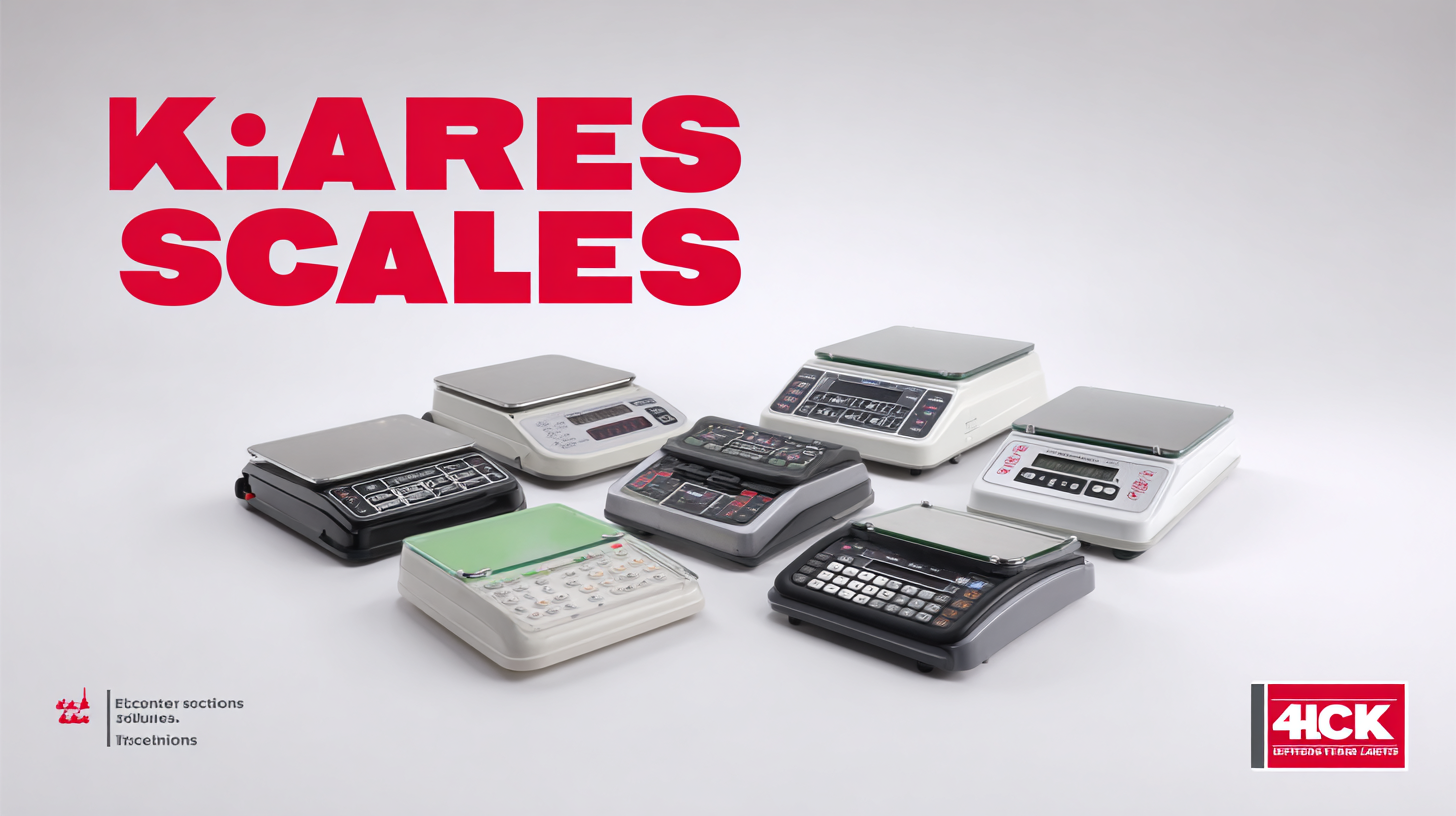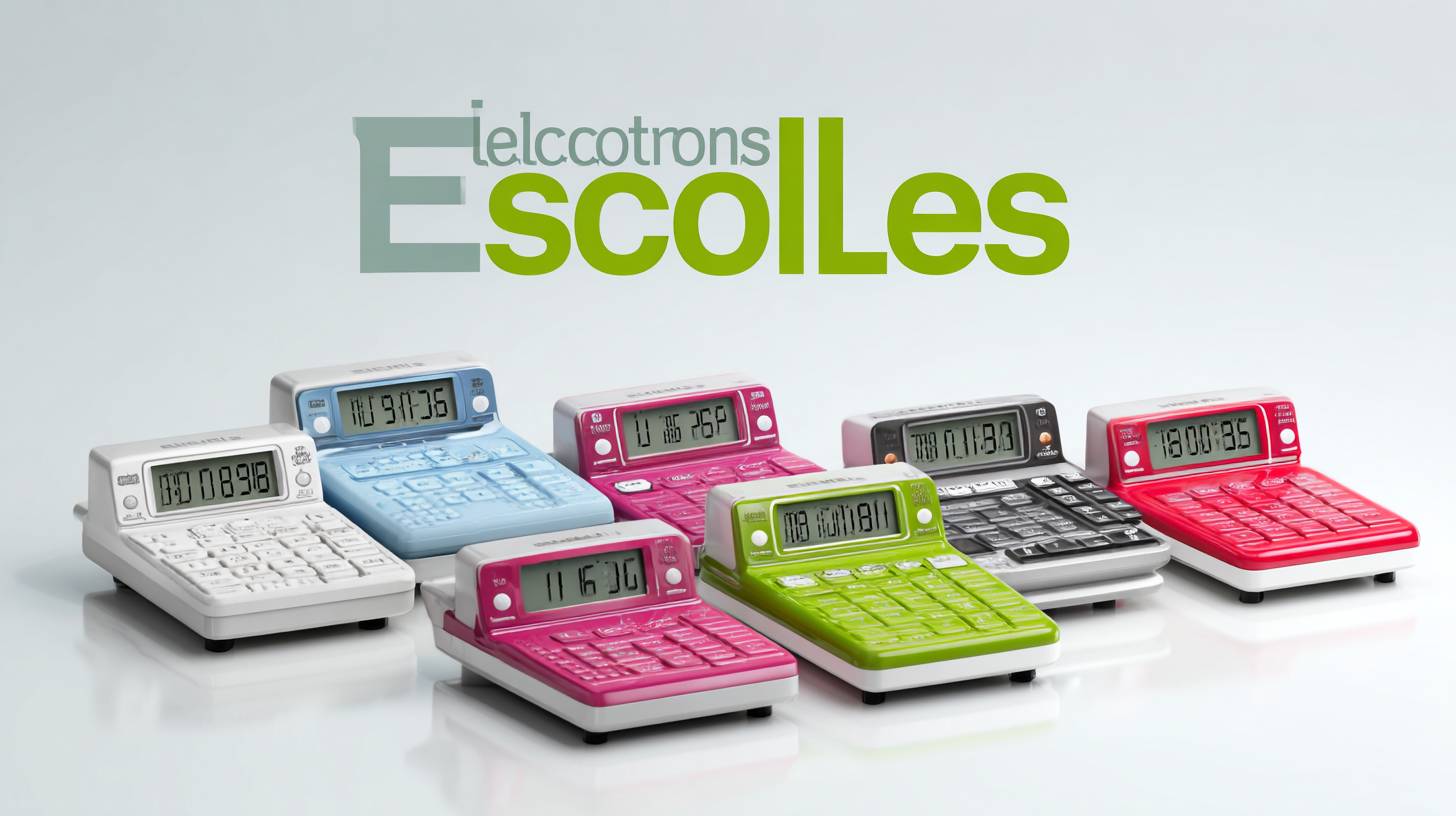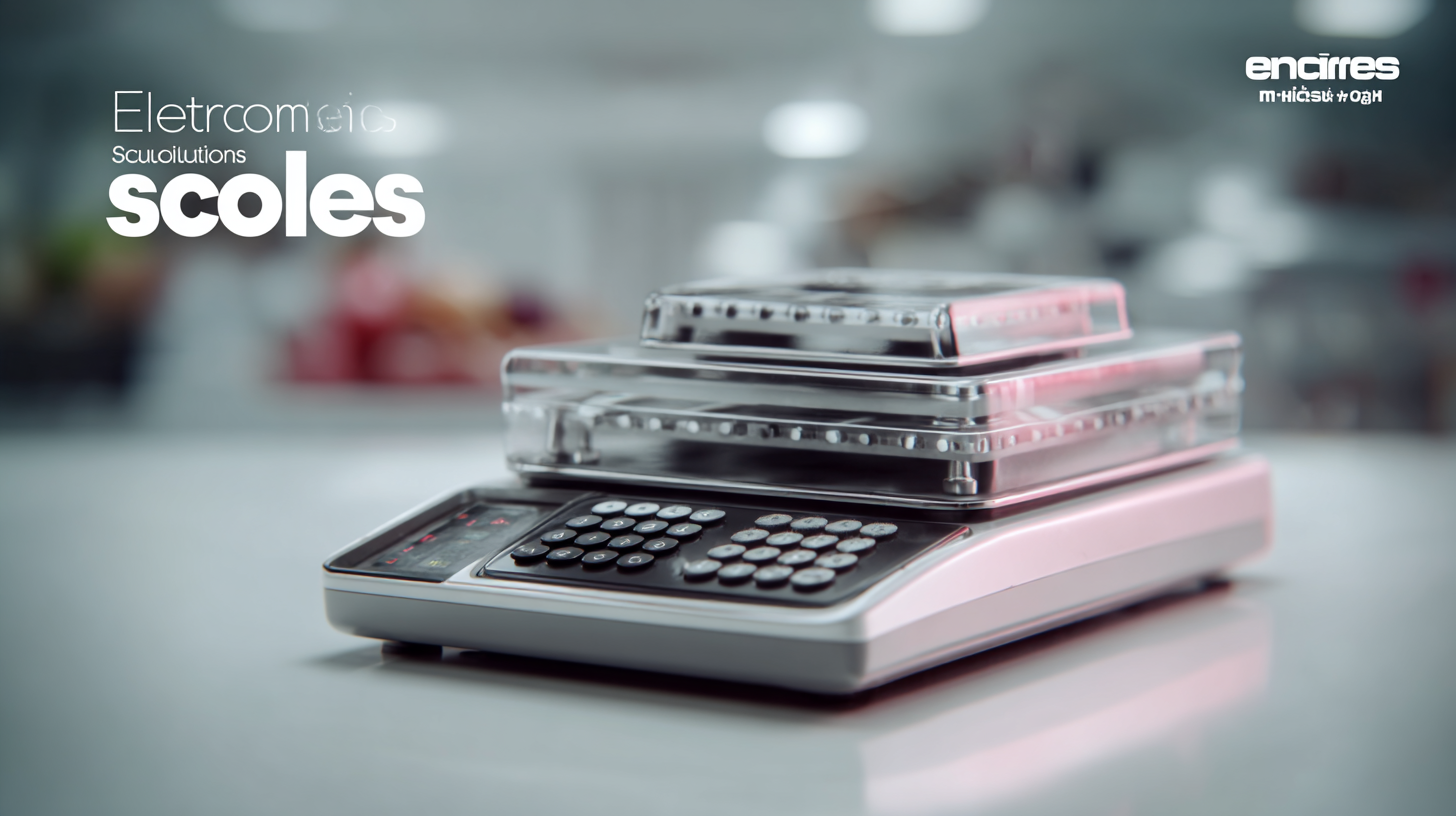In today's rapidly evolving marketplace, selecting the best Electronic Scales for your business has become increasingly crucial for operational efficiency and accuracy. According to a recent report by the International Journal of Advanced Manufacturing Technology, the global electronic scales market is projected to reach USD 5.7 billion by 2026, growing at a CAGR of 6.3% from 2021. This growth is driven by the demand for precision in weighing, especially in industries such as food and beverage, logistics, and pharmaceuticals, where accurate measurements can significantly impact profitability and compliance with regulatory standards. As businesses adapt to these changing dynamics, innovative solutions are emerging to streamline the selection process for electronic scales, ensuring organizations can meet their specific needs while leveraging state-of-the-art technology. In this blog, we will explore various strategies to identify the best electronic scales tailored to your business requirements.

When selecting the best electronic scales for your business, it's essential to understand your specific needs and operational requirements. Different industries have unique weight measurement demands, whether it’s for retail, manufacturing, or logistics. Identifying the ideal type of electronic scale means analyzing factors such as accuracy, capacity, and the environment in which they will be used. For example, a retail business might need compact scales with quick readouts, whereas a manufacturing facility might require heavy-duty scales capable of handling larger loads.
Furthermore, as businesses are increasingly integrating technology into their operations, incorporating smart features into electronic scales can offer significant advantages. Scales that connect to cloud systems can provide real-time data analysis and inventory management, which is crucial in today's fast-paced digital environment. Adapting to these technological trends not only improves efficiency but also positions your business to respond swiftly to market demands, paving the way for optimized operations and enhanced decision-making. Understanding these dimensions helps ensure you select the scale that best aligns with your business goals.
 When selecting electronic scales for your business, three key features—precision, capacity, and durability— should be at the forefront of your decision-making process. Precision is critical, especially in industries such as food service and pharmaceuticals where even minor discrepancies can lead to significant financial losses. According to the National Institute of Standards and Technology (NIST), scales with an accuracy of +/- 0.01 grams are essential in laboratory settings to ensure compliance with regulatory standards and to maintain product integrity.
When selecting electronic scales for your business, three key features—precision, capacity, and durability— should be at the forefront of your decision-making process. Precision is critical, especially in industries such as food service and pharmaceuticals where even minor discrepancies can lead to significant financial losses. According to the National Institute of Standards and Technology (NIST), scales with an accuracy of +/- 0.01 grams are essential in laboratory settings to ensure compliance with regulatory standards and to maintain product integrity.
Capacity is another crucial factor, particularly for businesses that deal with heavy or bulk items. Industrial electronic scales often feature capacities ranging from 1,000 grams to over 10,000 kilograms. A report from IBISWorld indicates that businesses in logistics are increasingly investing in high-capacity scales due to the growing trend of e-commerce, which requires precise and efficient weight management for shipping and inventory. Selecting a scale with the right capacity ensures that you can handle varying workloads without compromising on accuracy or safety.
Lastly, durability cannot be overlooked, especially in high-traffic environments like warehouses and retail spaces. According to Market Research Future, the global digital weighing scales market is projected to grow at a CAGR of 4.2% from 2021 to 2027, reflecting the rising demand for robust and reliable scales. Investing in scales with weatherproof and shock-resistant features can yield long-term cost savings by reducing maintenance needs and prolonging the equipment's lifecycle.
As technology continues to evolve, smart scales are revolutionizing the way businesses approach weight measurement. These innovative devices not only provide accurate weight readings but also integrate seamlessly with other digital systems, allowing for streamlined operations. According to a report by Grand View Research, the global smart scale market is projected to reach USD 4.9 billion by 2025, driven by the increasing demand for advanced weight management solutions. Implementing smart scales can enhance efficiency, reduce human error, and facilitate real-time data collection.
Tips: When selecting electronic scales for your business, consider models with multi-function capabilities that allow for easy integration with inventory management systems. This can significantly improve your workflow.
Moreover, integration solutions enable businesses to retrieve essential metrics and analytics from the scales, fostering data-driven decisions that can optimize supply chain processes. A study published by Transparency Market Research indicates that automation in weighing systems is expected to grow at a CAGR of 7.3% from 2021 to 2028, highlighting the critical role of technology in improving operational efficiency. By leveraging smart scales, companies can gain valuable insights that lead to better productivity and profitability.
Tips: Ensure that the electronic scales you choose are compatible with existing software platforms to maximize the benefits of integrated solutions.
When selecting electronic scales for your business, cost-efficiency is a critical factor that should not be overlooked. Investing in high-quality scales upfront can lead to significant long-term benefits that ultimately outweigh initial expenses. While cheaper models may seem appealing due to their lower price tags, they often come with hidden costs, such as increased maintenance needs or shorter lifespan, which can erode your initial savings. By prioritizing durable, efficient scales that meet your specific operational demands, you position your business for sustained success.
Moreover, understanding the long-term benefits of advanced features is essential to making a wise investment. Modern electronic scales offer accuracy, speed, and connectivity that can streamline your processes and enhance productivity. For example, scales equipped with inventory management systems reduce the time spent on stocktaking and minimize human error. As your business grows, these efficiencies become invaluable, translating into lower operational costs and higher profit margins. Thus, balancing your investment against the expected long-term gains is crucial for ensuring your business thrives in a competitive landscape.
| Scale Type | Initial Cost (USD) | Maintenance Cost (Annual) | Accuracy (g) | Lifespan (Years) | Return on Investment (Years) |
|---|---|---|---|---|---|
| Digital Scale | 150 | 20 | 0.1 | 5 | 1.5 |
| Mechanical Scale | 80 | 10 | 2 | 10 | 0.75 |
| Industrial Scale | 500 | 50 | 0.01 | 15 | 2.5 |
| Retail Scale | 200 | 25 | 0.05 | 8 | 1.2 |
Choosing eco-friendly electronic scales for your business is not just a trend; it’s a necessity in today’s environmentally conscious market. Sustainability in weighing solutions allows businesses to reduce their carbon footprint while adhering to global compliance standards. These scales are typically designed with energy-efficient technology, utilizing rechargeable batteries or solar power, significantly lowering electricity consumption. When selecting scales, look for certifications that guarantee compliance with environmental regulations and standards.

Moreover, eco-friendly scales often incorporate sustainable materials in their production, reducing waste and promoting recycling. By investing in such technologies, businesses can demonstrate their commitment to sustainability, which resonates with consumers increasingly concerned about the environmental impact of their purchases. Incorporating these scales into your operations not only enhances efficiency but also aligns your brand with values of environmental responsibility and corporate social responsibility. As customers become more aware of the products they use, adopting eco-friendly scales can be a significant step toward winning their loyalty and trust.
